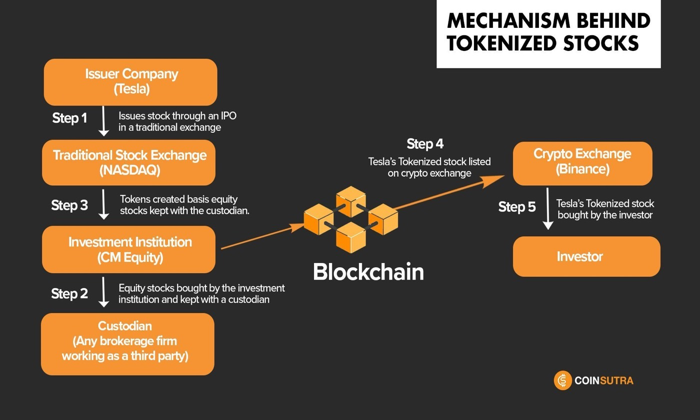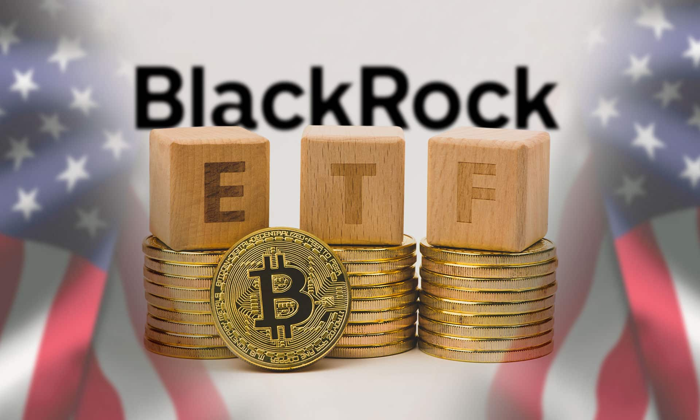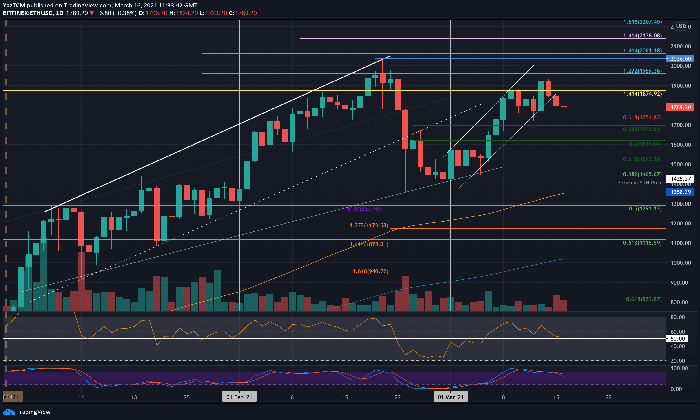Blackstone Bitcoin ETF investment marks a significant milestone as the asset management giant takes its first plunge into the cryptocurrency waters with a purchase worth over $1 million in BlackRock’s spot Bitcoin ETF. This move signals a broader acceptance of digital assets among traditional finance titans and highlights burgeoning interest in cryptocurrency investments. As the Bitcoin market trends evolve, Blackstone’s entry into this sector can potentially reshape its future asset strategies and align with emerging investor preferences. Analysts are closely monitoring Bitcoin ETF news, especially as major players like BlackRock consistently draw in significant capital. With Blackstone’s reputation as the world’s largest alternative asset manager, its investment in a Bitcoin ETF could pave the way for opening new avenues in the crypto landscape, bridging the gap between conventional investment strategies and the promising world of digital currencies.
In a bold strategic shift, the investment behemoth has commenced its inaugural foray into digital currencies by acquiring shares in a Bitcoin exchange-traded fund associated with BlackRock. This venture underlines the growing trend of institutional adoption of cryptocurrencies, as more traditional asset managers are reevaluating their portfolios to include alternative assets. With the rise of cryptocurrency investment vehicles like Bitcoin ETFs, financial institutions are beginning to recognize the potential advantages of diversifying their holdings in this rapidly evolving sector. Following the latest developments in Bitcoin ETF offerings, industry insiders speculate that such investments will set the stage for wider acceptance of digital currencies in mainstream finance. The implications of Blackstone’s investment could resonate across the financial landscape, facilitating deeper engagement with the innovative potential of blockchain technologies.
Blackstone’s Strategic Move into Bitcoin Investments
Blackstone’s recent acquisition of over $1 million in shares from BlackRock’s spot Bitcoin ETF marks a significant shift in strategy for the world’s largest alternative asset manager. As the firm attempts to expand its investment horizons, this move not only diversifies its portfolio but also signifies a growing acceptance of cryptocurrency as a legitimate asset class among institutional investors. With a total investment of approximately $1.08 million in the iShares Bitcoin Trust ETF, Blackstone is positioning itself alongside other major players in the cryptocurrency market, showing confidence in Bitcoin’s potential even amid fluctuations.
This initial investment in the Bitcoin ETF aligns with Blackstone’s broader investment strategy, which has historically focused on private equity and real estate. However, as the cryptocurrency market matures, firms like Blackstone recognize the need to adapt and explore emerging financial instruments like Bitcoin ETFs. This foray into cryptocurrency investments reflects not only a response to market trends but also an acknowledgment of the growing importance of digital assets in asset management portfolios.
The Impact of Bitcoin ETF on Market Dynamics
Bitcoin ETFs have emerged as a pivotal investment vehicle for attracting institutional capital, and the news of Blackstone’s investment only reinforces this trend. By allowing investors to gain exposure to Bitcoin without directly purchasing the cryptocurrency, ETFs have simplified the investment process. This model has proved appealing to large institutions and portfolio managers who seek to diversify their investments while mitigating the complexities associated with direct cryptocurrency holdings.
Moreover, the positive momentum in the Bitcoin ETF market, underscored by the consistent inflow of investments into BlackRock’s IBIT, illustrates shifting investor sentiment. As more institutional players join the fray, the Bitcoin market is likely to experience increased liquidity and stability. Analysts suggest that this growing acceptance ultimately bodes well for Bitcoin’s long-term asset viability, positioning it as a critical component of diversified investment portfolios.
Analyzing Current Bitcoin Market Trends
The Bitcoin market has undergone significant transformation, and recent developments from companies like Blackstone highlight these critical trends. The decision to invest in Bitcoin ETFs reflects a broader acceptance of cryptocurrency among traditional finance players. As institutional interest surges, Bitcoin has seen substantial growth in its acceptance as an alternative investment option alongside stocks and bonds. This integration signifies that Bitcoin may no longer be solely regarded as a speculative asset but rather as a legitimate strategy for wealth diversification.
Furthermore, as Bitcoin continues to gain traction, it is becoming increasingly intertwined with global financial markets. Current trends indicate that as institutional investments increase, Bitcoin’s price volatility may begin to stabilize, thus attracting even more investors. Investors now look to future movements in Bitcoin price influenced by macroeconomic factors, regulatory guidelines, and technological advancements, all of which are essential for any comprehensive investment strategy.
BlackRock’s Dominance in the Bitcoin ETF Space
BlackRock’s position as a leader in the Bitcoin ETF space is further solidified by the strong inflows reported since the launch of its iShares Bitcoin Trust ETF. With net inflows exceeding $46.1 billion since its inception, BlackRock has effectively capitalized on the growing institutional interest in cryptocurrency investments. This influx not only affirms the market’s confidence in Bitcoin ETFs but also indicates a broader acceptance of cryptocurrencies as a mainstream investment asset.
The robust performance of BlackRock’s Bitcoin ETF serves as a beacon for other asset managers and institutional investors who may still be cautious about entering the cryptocurrency space. BlackRock’s success highlights the potential revenue streams that can be tapped into as more investors look for Bitcoin exposure without the complications associated with handling digital currencies. As a result, more firms are likely to embrace Bitcoin ETFs as an integral part of their investment portfolios, influenced by BlackRock’s early and strategic entry.
Future Prospects for Bitcoin and ETFs
The future of Bitcoin and cryptocurrency ETFs appears promising, especially with growing institutional participation. The recent $1 million investment from Blackstone into the BlackRock Bitcoin ETF signifies that the market is gaining traction among mainstream investors. As more firms embrace digital asset strategies, this evolving landscape could lead to higher Bitcoin prices and increased market adoption.
Additionally, Bitcoin ETFs are likely to catalyze further regulatory developments, which could enhance investor confidence and fortify the market. As regulations become clearer, the barriers to entry for institutional investors will lower, making it feasible for larger amounts of capital to flow into Bitcoin and associated financial products. This growing confidence and understanding of cryptocurrency investments will solidify Bitcoin’s standing in the financial ecosystem.
The Role of Financial Institutions in Cryptocurrency Adoption
Financial institutions are playing an integral role in enhancing the legitimacy and stability of the cryptocurrency market. Blackstone’s investment in the Bitcoin ETF serves as an example of how traditional finance is beginning to embrace innovative financial instruments. This trend reflects a broader movement where asset managers recognize the shifting dynamics of investment portfolios that now include digital assets.
As institutional players like Blackstone and BlackRock continue to navigate the crypto landscape, their involvement is expected to usher in increased regulatory scrutiny and compliance standards. This would not only create a safer environment for investors but also promote a more mature market. With continued participation from significant financial entities, cryptocurrency is set to evolve into a more stable and accepted form of investment.
Exploring Diversification through Cryptocurrency
Diversification remains a key tenet of investment strategy, and incorporating Bitcoin into portfolios via ETFs provides an effective way to mitigate risks. By including digital assets like Bitcoin in their investment mix, portfolio managers can capitalize on the asset’s unique characteristics, including its low correlation with traditional asset classes. This offers a hedge against market volatility and economic downturns, which can be particularly beneficial during turbulent financial periods.
Investing in Bitcoin ETFs allows investors to gain exposure to asset price movements without the need to engage directly with the cryptocurrency marketplace. This model is particularly advantageous for institutional investors seeking to broaden their asset diversification without the complexities of direct cryptocurrency exposure. Consequently, Bitcoin ETFs could revolutionize traditional concepts of asset allocation, paving the way for a more integrated investment strategy that encompasses digital currencies.
Bitcoin’s Growing Mainstream Acceptance
The increased engagement from large investment firms such as Blackstone indicates a shift towards mainstream acceptance of Bitcoin as a legitimate investment vehicle. The recent buy into BlackRock’s Bitcoin ETF illustrates how far the cryptocurrency has come since its inception. As more corporations and institutional investors recognize Bitcoin’s potential as a store of value, its profile among traditional assets continues to rise.
With this growing acceptance, Bitcoin is no longer perceived just as a speculative digital currency; it is increasingly viewed as a viable alternative to fiat currencies and traditional assets. Indicators such as new ETF approvals, rising transaction volumes, and greater regulatory clarity all contribute to Bitcoin’s transition into the mainstream investment framework, indicative of its potential longevity and stability in future financial markets.
The Influence of Regulatory Frameworks on Bitcoin Investments
Regulatory frameworks play a crucial role in shaping the landscape around Bitcoin investments, particularly in the context of ETFs. As financial regulators begin to establish guidelines to govern digital assets, the cryptocurrency market is expected to see enhanced stability and transparency. Blackstone’s recent investment in BlackRock’s Bitcoin ETF underscores a growing confidence in regulatory frameworks, which could lead to increased participation from both institutional and retail investors.
Furthermore, as regulations tighten, the risk of fraud and market manipulation in the cryptocurrency sector is expected to decrease. This improved regulatory environment will encourage more traditional investors to explore cryptocurrency investments, potentially resulting in a surge in capital inflow into Bitcoin ETFs. As the regulatory landscape evolves, it can pave the way for a more standardized approach to digital asset management.
Understanding the Technological Factors Driving Bitcoin Adoption
Technological advancements are fundamental to the growth and adoption of Bitcoin and its underlying blockchain technology. The increase in transaction efficiency, security, and scalability of blockchain networks has contributed to the rising popularity of Bitcoin as an investment. Blackstone’s entry through the Bitcoin ETF signifies not only a financial decision but also an acknowledgment of the technological evolution that makes these assets more viable for institutional participation.
As technology continues to advance, potential improvements in transaction processing and the development of integrated financial solutions for handling digital assets could further drive Bitcoin adoption among investors. Financial institutions are beginning to harness these technologies, making them more accessible to everyday investors and thereby enhancing Bitcoin’s long-term appeal as part of diversified portfolios.
Frequently Asked Questions
What is the significance of Blackstone’s investment in BlackRock’s Bitcoin ETF?
Blackstone’s investment in BlackRock’s Bitcoin ETF marks its first foray into the cryptocurrency space, holding over $1 million in shares. This move indicates growing institutional interest in Bitcoin and could signal a shift in how alternative asset managers view cryptocurrency investments.
How many shares of BlackRock’s Bitcoin ETF did Blackstone acquire?
As of March 31, Blackstone reported acquiring 23,094 shares of BlackRock’s iShares Bitcoin Trust ETF (IBIT), worth approximately $1.08 million. This investment demonstrates Blackstone’s cautious but emerging interest in Bitcoin and the broader cryptocurrency market.
What other cryptocurrency investments did Blackstone make in addition to the Bitcoin ETF?
In addition to its investment in BlackRock’s Bitcoin ETF, Blackstone also purchased 4,300 shares in Bitcoin Depot Inc., a crypto ATM operator, and invested $181,166 in shares of the ProShares Bitcoin ETF (BITO). These moves reflect a strategic approach to diversify its exposure within the cryptocurrency space.
How has the market reacted to Blackstone’s Bitcoin ETF investment?
The market response to Blackstone’s investment in BlackRock’s Bitcoin ETF has been positive, as it reinforces the trend of increasing institutional investment in Bitcoin. BlackRock’s IBIT has seen significant inflows, totaling over $46.1 billion since its launch, indicating strong investor confidence and interest in cryptocurrency investments.
What other investment funds are experiencing significant inflows alongside BlackRock’s Bitcoin ETF?
Alongside BlackRock’s Bitcoin ETF, other funds such as the Fidelity Wise Origin Bitcoin Fund (FBTC) and the ARK 21Shares Bitcoin ETF (ARK) have also gained substantial inflows. FBTC has received $11.8 billion, while ARK has accumulated $2.8 billion in net inflows, highlighting a robust demand for Bitcoin-related investment products.
Why has Blackstone traditionally avoided cryptocurrency investments before now?
Historically, Blackstone has been cautious regarding cryptocurrency investments. CEO Steve Schwarzman has previously expressed skepticism about the application of blockchain for currency use, indicating a struggle to grasp the technology. However, the recent investment in BlackRock’s Bitcoin ETF indicates a potential reconsideration of this stance.
What is the outlook for Blackstone’s future investments in the Bitcoin market?
Given Blackstone’s recent investment in BlackRock’s Bitcoin ETF and the overall positive sentiment in the cryptocurrency market, there may be more proactive strategies from Blackstone towards Bitcoin and other digital assets in the future. Overall market trends suggest institutions are increasingly viewing cryptocurrency investments as viable opportunities.
| Key Point | Details |
|---|---|
| Blackstone’s Investment | Blackstone invested $1.08 million in BlackRock’s Bitcoin ETF as its first entry into cryptocurrency. |
| Shares Held | Blackstone holds 23,094 shares of BlackRock’s iShares Bitcoin Trust ETF (IBIT). |
| Alternative Asset Management | Blackstone is the world’s largest alternative asset manager, mainly investing in private equity, real estate, and credit. |
| Other Crypto Investments | Additionally, Blackstone purchased shares in Bitcoin Depot Inc. and ProShares Bitcoin ETF. |
| Investment Strategy Hesitance | CEO Steve Schwarzman has previously expressed skepticism about cryptocurrency as a currency. |
| Market Trends | BlackRock’s Bitcoin ETF has gained significant inflows, totaling over $46.1 billion since its launch. |
Summary
Blackstone Bitcoin ETF investment marks a significant shift for the company as it delves into the world of cryptocurrency. With a notable investment in BlackRock’s Bitcoin ETF, Blackstone is not only diversifying its portfolio but also capitalizing on the growing trend of institutional interest in the digital asset market. This move showcases an evolving attitude towards cryptocurrency, indicating that even historical skeptics are beginning to explore the potential of Bitcoin and other blockchain technologies.
The Blackstone Bitcoin ETF investment marks a significant step for the renowned asset management firm as it dives into the realm of cryptocurrency. As of March 31, 2023, Blackstone disclosed ownership of just over $1 million worth of shares in BlackRock’s spot Bitcoin ETF, stirring excitement within the investment community. This pivot towards digital assets highlights Blackstone’s evolving strategy in response to growing Bitcoin market trends and increased interest in cryptocurrency investments. By aligning with BlackRock’s iShares Bitcoin Trust, Blackstone demonstrates confidence in the future relevance of Bitcoin as an investment vehicle. As more institutions turn to Bitcoin ETF news, this move could potentially reshape investor perceptions and engagements within the cryptocurrency landscape.
In recent developments, the significant foray of Blackstone into the cryptocurrency sector has captured attention across financial sectors. This strategic investment in a Bitcoin exchange-traded fund signifies a shift in traditional asset management approaches, particularly among giants like Blackstone. As large institutions explore digital currencies, terms such as Bitcoin asset management and cryptocurrency portfolios are becoming commonplace. With Blackstone’s involvement in this innovative investment space, conversations surrounding cryptocurrency’s legitimacy and integration into mainstream finance are becoming increasingly relevant. Observers are keen to follow how these trends evolve, especially with other major players like BlackRock expanding their ETF offerings.














